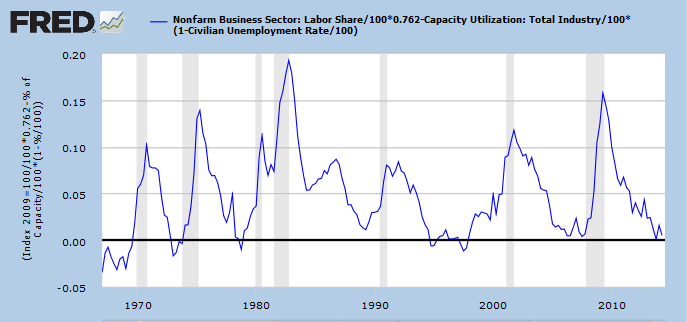The Slack Wire When Do Profits Count
Post on: 9 Июль, 2015 No Comment

Tuesday, February 5, 2013
When Do Profits Count?
From today’s New York Times story about the new crop of billion-dollar internet startups:
Most of these chief executives are also veterans of the Internet bubble of the late 90s, and confess to worries that maybe things are not so different this time. Mr. Tinker. said, The reality is, Ive taken $94 million in investors money, and we havent gone public yet. I feel that responsibility every day.. The nagging fear is that valuations, which are turned into profits only if the company goes public successfully or is bought for a high price. could still plunge. The cheap pleasure here is gawking at the next stupid Pets.com. (The NYC subway right now is plastered with ads for some company that, wait for it, lets you order pet food online .) But maybe all of this lot will thrive, I have no idea. What I’m interested in is that bolded phrase.
You might naively think that whether a business makes profits is independent of who happens to own it. Profits appear as soon as a commodity is sold for more than the cost of its inputs. So the bolded sentence really only makes sense with the implied addition, profits for venture capitalists or for finance. But in the disgorge-the-cash era. that’s taken as read.
Capitalism is still about M-C-C’-M’, same as it ever as. But C-C’ now includes not just the immediate process of production, but everything related to the firm as a distinct entity. Profits aren’t really profits, under the current regime, as long as the claim on them is tied to a specific business or industry. And the only real capitalists are owners of financial assets.
(Of course what is interesting about the internet economy is the extent to which this logic has not held there. Functionally, profitability for internet companies has meant a relationship of sales to costs that allows them to grow, regardless of the level of payouts to financial claimants. Whether articles like this are a sign of a convergence of Silicon Valley to the dominant culture, or just an example of the bondholder’s-eye view reflexively adopted by the Times. I don’t know.)
It is important to note that wealth as such, i.e. bourgeois wealth, is always expressed to the highest power as exchange value, where it is posited as mediator, as the mediation of the extremes of exchange value and use value themselves. Within capital itself, one form of it in turn takes up the position of use value against the other as exchange value. the wholesaler as mediator between manufacturer and retailer, or between manufacturer and agriculturalist, or between different manufacturers; he is the same mediator at a higher level. And in turn, in the same way, the commodity brokers as against the wholesalers. Then the banker as against the industrialists and merchants; the joint-stock company as against simple production; the financier as mediator between the state and bourgeois society, on the highest level. Wealth as such presents itself more distinctly and broadly the further it is removed from direct production and is itself mediated between poles, each of which, considered for itself, is already posited as economic form. Money becomes an end rather than a means; and the higher form of mediation, as capital, everywhere posits the lower as. labour, as merely a source of surplus value. For example, the bill-broker, banker etc. as against the manufacturers and farmers, which are posited in relation to him in the role of labour (of use value); while he posits himself toward them as capital, extraction of surplus value; the wildest form of this, the financier. Finance stands with respect to productive enterprises as capitalists in general stand with respect to labor (and raw material). So it makes sense that, from finance’s point of view, profit is not realized with the sale of the commodity, but only with the sale of the enterprise itself.














